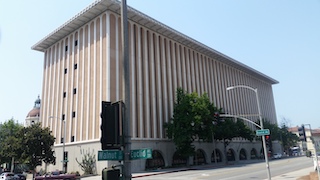The case of S.M., in San Francisco, put the principle of section 1385 to the test. On March 21, 2011, S.M. attended a traffic court hearing in downtown San Francisco. At 2:45 p.m., he made an in-person police report with the San Francisco Police Department, stating that when he returned to his parked car after court, he discovered that someone had broken his car window and stolen his laptop computer. The same day, S.M. made a report to his insurer, State Farm, and was told that his existing policy did not cover the loss.
That same evening S.M. purchased comprehensive automobile insurance over the phone with GEICO. In response to the application’s question of whether he had any vehicle vandalized or stolen “all or in part” in the last five years, S.M. answered “no.”
The next day, S.M. filed an online incident report with the San Francisco Police Department stating that on March 22, his vehicle was broken into. This report notably was one day after he had filed the in-person report saying the break-in was March 21.
On March 23, S.M. filed a claim with GEICO, stating his car was broken into on March 22, after the inception of his GEICO policy. S.M. then met with a GEICO representative in-person and claimed damage to his car window was $316. He did not claim the loss of the laptop because his policy did not cover this.
Before GEICO issued payment to S.M., it learned about the true date of the break-in. It then notified the San Francisco Police Department, which prepared a report.
The San Francisco District Attorney’s office then filed a seven-count felony complaint, alleging:
- Presenting a false or fraudulent insurance claim (Penal Code § 550(a)(1));
- Conspiring to present a false and fraudulent claim for damage to a motor vehicle and/or its contents (Penal Code § 550(a)(4));
- Presenting a knowingly false and misleading statement in support of an insurance claim (Penal Code § 550(b)(1));
- Conspiring to present a knowingly false and misleading statement in support of an insurance claim (Penal Code § 550(b)(2));
- Conspiring to conceal an event that affected a person’s entitlement to, or the amount of, an insurance benefit (Penal Code § 550(b)(3));
- Offering as true in connection with an investigation, a writing known to be forged, fraudulent, altered, or back-dated (Penal Code § 132); and
- Preparing a fraudulent and backdated writing to be presented in connection with an investigation (Penal Code § 134).
No preliminary hearing was held until February, 2015, a full three years and four months after the case was filed. After the preliminary hearing, the judge denied S.M.’s motions to reduce all charges to misdemeanors.
An information was filed based on the preliminary hearing, although the prosecution dismissed two of the accounts on its own. Several more continuances took place and finally, on December 17, 2015, over the prosecutor’s objection, the trial court granted its own motion to dismiss all counts in the interest of justice.
The prosecution appealed the ruling to the First Appellate District, which affirmed the trial court (
People v. S.M. (2017 DJDAR 1885)). The First Appellate District approached the issue by stating first and foremost that the standard for appellate review of a decision to dismiss charges in the furtherance of justice is whether the trial court abused its discretion.
People v. Ortega (2000) 84 Cal.App.4th 659, 666.
The discretion cannot be exercised to accommodate judicial convenience or court congestion.
People v. Kessel (1976) 61 Cal.App.3d 322, 326.
In reviewing the case facts, the appellate court found that the loss was actually never paid and that a conviction would have a devastating effect on S.M.’s career choice in high tech security.
We think this decision was proper, as S.M. certainly learned his lesson.
 Pasadena Courthouse
Pasadena Courthouse